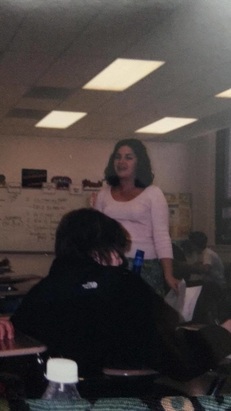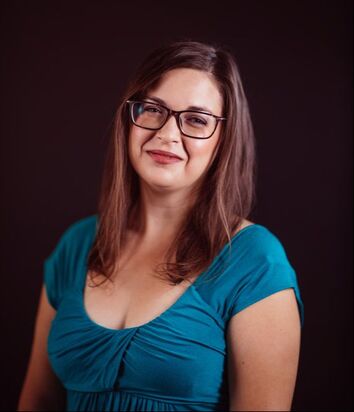|
Recently an old friend of mine from high school and I reconnected via the magic of Facebook. He was surprised to see that I had written a book, and during conversation he mentioned that he wanted to hear my thoughts on addiction. I wanted to gather my thoughts before I talked to him, but I also needed to get clear for myself on what addiction meant to me personally. I soon received guidance that this was an opportunity to start an open conversation about the concept of addiction.
 When a friend sent me this old picture last week, my immediate thought was, “wow, apparently high school was as blurry as I remember it” When a friend sent me this old picture last week, my immediate thought was, “wow, apparently high school was as blurry as I remember it”
The first thing that crossed my mind when he asked me was, “why does he want to talk to me about addiction? What does he know?” Fear and embarrassment were my initial reactions to his inquiry. Was I more of a mess than I remember? Maybe. Did people talk about me? Possibly. Did any of that matter anymore? After taking a few deep breaths and re-centering myself, I began to recognize that the fear and embarrassment over discussing addiction were old emotions and, no, it didn’t matter anymore. If I could help someone shift their perspective on addiction, then it was time for me to address the issue for myself as well, once and for all.
While most of the time the connotation of the word addiction is shameful and scandalous, I believe this is a delicate topic that does not often get the respect that it deserves. The modern conversation on addiction addresses the concept from what I believe to be a very simplistic perspective. Psychology Today defines it as "a condition that results when a person ingests a substance (e.g., alcohol, cocaine, nicotine) or engages in an activity (e.g., gambling, sex, shopping) that can be pleasurable but the continued use/act of which becomes compulsive and interferes with ordinary life responsibilities, such as work, relationships, or health”. I find this frustrating because addiction is much more prevalent than in the use of alcohol, nicotine, or illicit drugs. A person can be addicted to food or much more commonly, to people, relationships and emotions, in addition to the aforementioned substances and/or pleasurable behaviors. In that context, I would say that most people have more addictive qualities than they are willing to admit, and address. If our society could admit that to an extent, most everyone has a certain degree of addictive qualities the stigma surrounding it could be withdrawn. When we remove the stigma, we can address the core issues behind the bigger problem. Shifting our perspective to understand addiction on a deeper level allows for greater healing. I believe that addiction is born from the avoidance of feelings and emotions. This is often coupled with not wanting to be in the present moment. Often people don’t want to feel or experience unpleasant emotions such as fear, anger, hurt, pain, sadness, etc., so they turn to drugs, alcohol, food, sex, gaming, and even other people to distract them from dealing with their own emotions and self expression. I share this perspective as someone who has faced addiction from many facets. In middle school I began my own dance with addiction, starting with food and cigarettes, and over time, waltzing my way from alcohol to hard drugs. By the time I was in high school, I was drinking hard liquor in class and in complete denial of any emotions. Once I started to gain awareness of my own avoidance behaviors, I recognized the addiction all around me and began to receive emotional support through my school’s version of Alateen. In order for me to move forward with my life, I needed some introspection of my behaviors, decisions and patterns. I began to recognize that didn’t want to feel anything, so I would get drunk or high so I didn’t have to feel - I would do anything that allowed me to escape the present moment. As my addictions progressed, I noticed that I would throw myself into unhealthy, co-dependent relationships to try and feel love from another person since I couldn’t feel anything for myself. Over time, I came to the awareness that I was looking to other people and substances instead of experiencing emotions myself in a healthy and productive manner. So I bet you’re wondering if I still consider myself an addict? No. I never did in the first place. I suppose that given my past, people may label me as an addict, though I have never stood up in front of a group and declared myself as such. I don’t like labels; I don’t like the judgement that labels elicit from other people or from myself. I do still drink, but in conscious moderation. I don’t like the idea of living in fear thinking that I absolutely cannot do something. Living in fear relinquishes your power to that which you are afraid of. When I am in a situation where alcohol is involved, I stop and check in with myself to see why I am drinking. If I am drinking to celebrate and IN JOY, then thats great! However, if I am drinking to avoid my feelings, then I know to stop and take a deeper look at the emotion behind that energy. Here is some guidance that I’d like to share for anyone who resonates even slightly with the idea of addiction. Do not judge yourself. Let me repeat that, so it sinks in... DO NOT JUDGE YOURSELF. You are always in the right place at the right time—if you weren’t supposed to be somewhere, then you wouldn’t have been there. If you are in a certain space or situation, there is a lesson to be learned from it. As long as we learn from our experiences and do not continue to make the same decisions once we have gained the awareness, we can move forward and break the cycle. Everything happens for a reason, in the time that it is supposed to happen. Emotions and feelings do not go away if we do not deal with them, they will only be repressed to be dealt with in another possibly more destructive fashion. The Universe will often start with whispers and if we do not listen to them, they turn into screams. The only way to move forward is to take time to sit with the emotion, feel it and experience it. Truly honoring it, not rushing to explain away or justify the situation is key. We don’t always have to understand everything about the emotion even though we want to figure out the who, what, when, where and why. Even when we think we have it all figured out, we are wrong anyways. Part of the journey is not knowing and being okay with that. Healing is not always going to be comfortable, but neither is complacency. I hope that this message sheds some fresh perspective on the idea of addiction and allows for any healing to take place that is of your highest and best good at this time. I look forward to hearing your perspectives on the subject and shifting the conversation about addiction into a more positive and nurturing light. Love and Light, xo Arielle Sterling P.S. Want to keep up with all my latest blogs and offerings? Make sure to sign up for my mailing list and receive a FREE gift from me as a thank you for being on this journey together!
1 Comment
|
Arielle SterlingArielle is a best-selling author, holistic life coach and intuitive energy healer. Archives
July 2024
Categories
All
|


 RSS Feed
RSS Feed